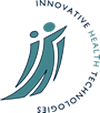Inclusive Internet Technologies For People With Communication Impairment
Abstract
Using participative action research methods, this project will explore the potential of Internet-based technologies for people with communication impairment. It will identify facilitators and barriers to access, develop practical solutions and explore implications for Internet-based health information. It will explore how the Internet might contribute to the process of reconstructing identity, telling and hearing illness narratives, and become a means for this isolated and excluded group to form and join new communities. Following a review of existing sites, accessible prototype websites will be built and implemented and then evaluated by people with aphasia (an acquired communication impairment). Outputs will include guidelines for website design and a training package for people with aphasia.
Summary
Background
People who have communication impairments are often socially excluded in a number of ways. They may find it difficult to talk and share their thoughts and experience with others, to make sense of written material, and to express themselves in writing. People with aphasia (a communication impairment that can occur after stroke) describe their struggle to resume work and leisure interests, to maintain relationships, and to access information and support. They describe being cut off from their communities, and disconnected from their former selves. This project will explore the potential of the Internet as one means of dismantling these barriers. Effectively, communication impairment may mean that access to the Internet is restricted. The project will determine the needs of people with aphasia in relation to accessing Internet-based information, and creating and joining virtual communities. It will implement and evaluate criteria for creating Internet accessibility for people with communication impairment, and identify parameters for training and support. The project also aims to explore the potential of Internet-based technology for the telling of illness and disability narratives amongst this group.
Research Design
A working group of people with aphasia will review a range of websites, including those intended to be accessible to disabled people, those dispensing health-related information, and chat-rooms and forums. Through a process of participative action research (comprising observation, monitoring, focus-group discussion and in-depth interview) a taxonomy of barriers and facilitators concerning access to Internet-based technologies will be developed, and the potential for enhancement of individual and social identity will be probed. A set of design criteria will be developed, and refined through an iterative process of consultation with the working group and with comparable groups in USA, Canada and Australia. A prototype website will be built, evaluated by the working group, then amended. The research process will be documented and recorded in minute detail, through field-notes and transcriptions, and will be inclusive of the people whom it concerns.
Policy and Academic Implications
By identifying how people with communication impairment can access Internet-based technologies, the project will have implications the dissemination of social, healthcare and welfare information, and for anti-discriminatory policy. It will also expand theories concerning language impairment, disability narrative and identity. There will be a number of practical outputs from the project, including guidelines for accessible website design, parameters for training and support, and a working prototype website.
The project relates to a number of the central objectives of the IHT programme. It will identify some ways in which IHTs relate to conception of self, identity and the meaning of health and illness. It will address the redistribution of power and knowledge between medicine and the public, and evaluate the effect Internet-based IHTs have on the social exclusion and inclusion of people with communication impairment.
Contacts
Outputs
Research Findings
Findings are available here - pdf
Web Page
http://www.aphasiahelp.org/ This is the key output from the project
Journal Papers
Parr, S. Inclusive Internet Technologies for People with Communication Impairment. Stroke Association (Stroke News). September. 2001.
Parr, S. Inclusive Internet Technologies for People with Communication Impairment. British Aphasiology Society Newsletter. August. 2001.
Parr, S. Inclusive Internet Technologies for People with Communication Impairment. Speaking Up (the publication of Speakability, a charity that works on behalf of people with aphasia). August. 2001.
Conference Papers
Parr, S. (Oral) Narrative and Psychosocial Aspects of Aphasia. World Congress Int. Ass. Logopaedics & Phoniatrics. 75th, 2001, Montreal.
Parr, S. (Oral) Narrative and Psychosocial Aspects of Aphasia. BMA Narratve-Based Medicine Conference. 2001, Cambridge, UK.
Media
Web site
Parr, S (Interviewee). Inclusive Internet Technologies for People with Communication
Impairment. Communications Forum. 2001.
News
No news

